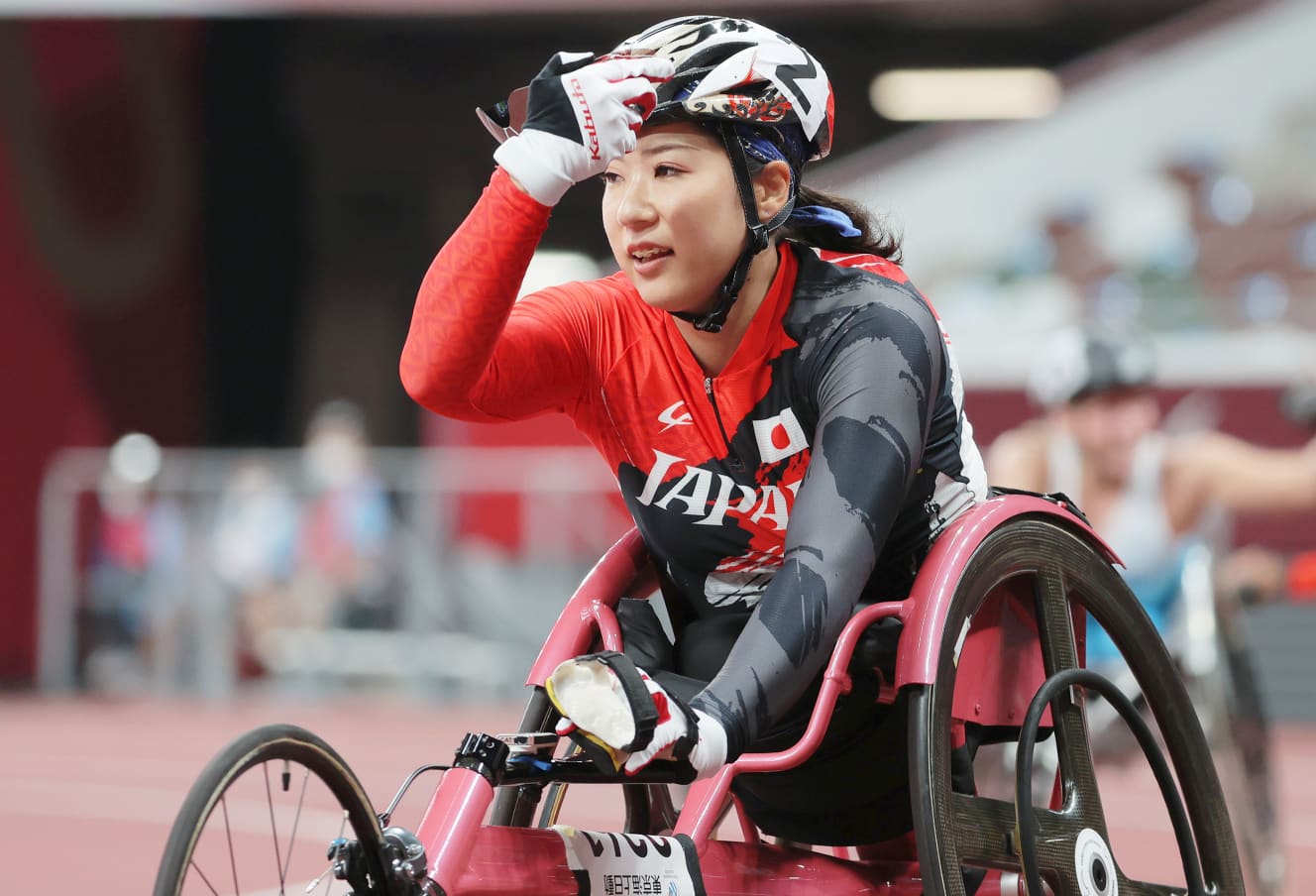Alpine Skiing Gold Momoka Muraoka Talks about Fear
Beijing Paralympics2022Athlete captain who achieved "3 gold, 1 silver" on the big stage for the third time
One of my contact lenses fell out (near the checkpoint in the middle of the race). I was skiing along thinking, ‘Oh, here’s my contact lens.
Alpine Skiing Women’s Super-Giant Slalom (seated) at the Beijing Paralympics on March 6. Momoka Muraoka (25) won the gold medal despite an unexpected accident. She also won gold in the downhill (seated) on the 5th, and silver in the super combined (seated) on the 7th, bringing her medal tally to three. She also won a gold medal in the women’s giant slalom in seated alpine skiing. The Japanese ace, who won five medals in Pyeongchang, also had an impressive performance in Beijing as the leader of the team.
Forster, 26, of Germany, whom Muraoka defeated in this race, was his biggest rival for a medal in Pyeongchang ’18 as well. In fact, Vorster won the gold medal in the Super Combined the next day, beating Muraoka’s time by the narrowest of margins. Alpine skiing is a sport where line taking is very important, and Beijing was one of the most difficult courses. While his rivals were setting good times, it is amazing that he kept his cool even when he dropped his contact lens,” said a Paralympic reporter for a sports newspaper.
After the race, Muraoka said, “For a moment during the race, I couldn’t see anything,” but he was able to recover from the experience and sensation he had built up in practice, and skied down the steep slope at an average speed of over 90 km/h. He was able to finish the race at a speed of over 90 km/h. When skiing from a seated position, the line of sight is closer to the snow surface than when skiing from a standing position, which increases the speed of the skier’s experience. Therefore, it requires mental strength to overcome the fear of falling. Muraoka won the downhill and super giant slalom, both of which are classified as high-speed events, but he says he originally struggled with fear.
When he competed in Sochi (’14) at the age of 17 while still in high school, he placed 5th in the giant slalom, but was unable to compete in the downhill and had to abandon the super giant slalom. However, in Pyeongchang, after entering Waseda University, he made the podium, taking silver in the downhill and bronze in the Super-Giant Slalom. She won medals in all five events she competed in.
Muraoka has revealed, unusually for a top athlete, that he is extremely shy and has stage fright. He also said, ‘Alpine skiing has always been a battle against fear,’ and from Sochi to Beijing, he seems to have challenged the big competitions with the fear that he might fall and suffer a serious injury. On the other hand, he also professes to hate losing more than anyone else. He must have been under a lot of pressure in this tournament, where he was expected to be the ace. I think that her desire not to lose may have exceeded her fear at the very last minute.
In 1919, after the Pyeongchang Olympics, Muraoka decided to take up the challenge of wheelchair athletics and was unofficially selected to represent Tokyo at the Paralympics. Despite the irregularity of the postponement of the Games, he finished 6th in the 100m. It was his natural competitive spirit that backed up his “two-faced” challenge, which was feared to have an impact on Beijing in the winter six months later.
Hidemichi Kurata, who was Muraoka’s ski club coach when she entered Waseda University, said, “She was a very strong skier.
When she stood on the starting line this time, she looked very calm. She must have gained confidence after her double competition at the Tokyo Para. It was the first time for a para-athlete to join Waseda University’s ski club, and there were many twists and turns in the admission process. I asked her, ‘There will be many hardships once you enter the university, but will you be able to make your own way? She replied, ‘I have been trying to make my own way ever since I decided I wanted to go to Waseda. And later, she even took up the challenge of track and field and achieved results. Her pride in overcoming difficulties and her high awareness, which has not changed since those days, must be the driving force to overcome her fear of taking a step back.”
We look forward to Muraoka’s further success.

From the March 25, 2022 issue of FRIDAY
Photo: Jiji Press
